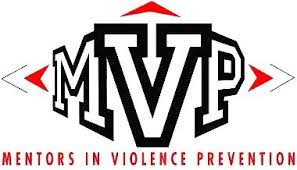MVP members find healthy takeaways from recent summit

Mentors in Violence Prevention (MVP) is an international student-led program that aims to foster a positive learning environment in schools and prevent dating violence and bullying through education and teaching mentors and students alike to stand up for other students in dangerous situations.
On Oct. 27 for the majority of the school day, MVP members attended the MVP Summit in Waterloo with multiple workshops on things like dating violence, empathy, leadership skills, bullying and self-care.
All of this was in preparation for Monday health Lessons. Every Monday a group of MVP members will go into a Character Strong class and talk to the sophomores about things like alcohol and drug use and dating violence because hearing about it from an adult sometimes doesn’t connect with kids, and they need someone like them to tell them the dangers of addiction and the importance of consent.
MVP member Akshat Mehta replied to a Q&A regarding what he learned from the MVP summit and what he would like to bring to the health lesson visits.
Q: What was the most influential things you learned from the MVP summit on Oct 27, and did it give you any ideas for the health class visits or change your approach to being an MVP member?
Something that I’ve taken from the MVP Summit into my day-to-day life is the necessity of true empathy. A professor explained that when someone shares their vulnerability or problems with you, there are different approaches—empathy, sympathy and offering solutions—that we may take. She explained that even if we understand that when people express their emotions, they often just want someone to hear them out rather than solve their problems (and we accordingly believe ourselves to be considerate people) we may still fail in offering a sympathetic response instead of an empathetic response. Sympathy is feeling for someone, but empathy is feeling with someone. Real empathy, not just sympathy, is needed to connect with someone. Just by changing our language, we can reflect someone’s emotion rather than just offer pity, more effectively making them feel supported.
To understand this it helps me to think about the fact that we can also empathize with people in times of happiness, and there’s a big difference between jumping up and down with someone in a moment of excitement and happiness vs. sitting entirely still in a chair and saying in a monotone voice, “I am so happy for you.”
Q: Do you have any ideas on how to talk about bullying and dating violence in the health classes that aren’t related to the two previous questions? Do you maybe don’t have any ideas and feel kinda lost?
We cultivate discussion on these sensitive topics by proposing hypothetical scenarios relating to alcohol, social pressure, consent, etc. and then leading discussion with students based around their reactions to the scenario, using guiding questions such as “Does this situation take place in real life? In your community and school?” or “What are some red flags about this situation?” or more the more open-ended “How does this situation make you feel?” We discuss in small groups to create more personal and effective conversation.
Q: Have your views on dating violence and bullying changed since joining MVP?
The most shocking realization was learning that most abuse happens between people who already know each other. In training, I heard, “Rape gets portrayed as the stranger jumping out of a bush and committing sexual assault when it really is two people who go to school together having nonconsensual sex at a party.” I apologize for that being depicted so bluntly, but that was the illustration that resonated with me. We might hear the statistic that most sexual abuse happens between people who already knew each other, but don’t put it together until you start to learn about scenarios in which this abuse actually happens between people who know each other.
Q: Do you think the administration is going to assist MVP members? Do you think the length of health classes is going to be a big problem preventing MVP members from getting as in-depth in certain topics?
We all have the common goal of integrating student-mentor-led discussion into health class. Between Mr. Teply, officer Reimers, the school resource officer, and our awesome guidance counselors (especially Mrs. Langan!), the administration has only been supportive of MVP members in achieving that.
With the MVP health presentations happening during Monday classes, time is a pressure point, but we definitely can prioritize quality over quantity in our lesson plans to attain an appropriate depth of discussion.
https://cultureofrespect.org/program/mentors-in-violence-prevention-mvp/









You must be logged in to post a comment Login